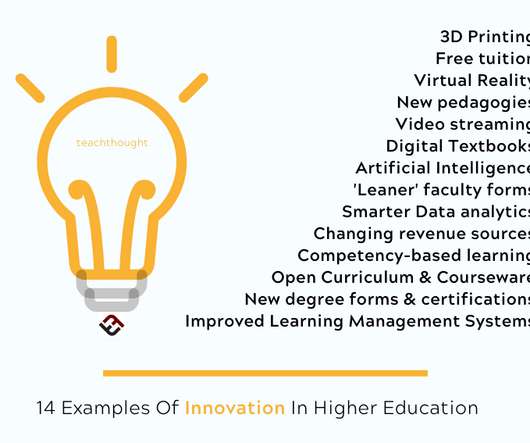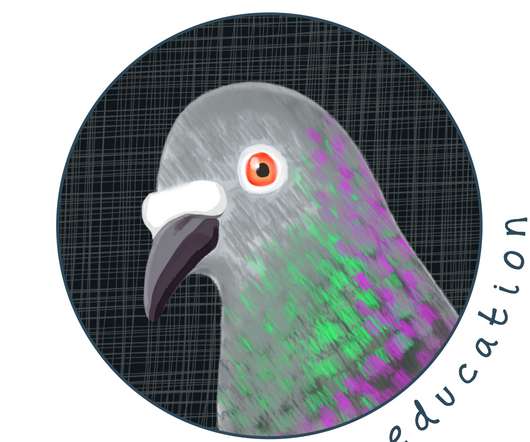14 Examples Of Innovation In Higher Education
TeachThought - Learn better.
MAY 12, 2020
From Zoom to Skype to Webinars and even live streaming on social media itself, video is perhaps the most visible and common form of technological innovation in K-12 and higher ed. MOOCs are great ideas, but assessment and feedback loops and certification are among the many issues holding them back. We shall see. An example?























Let's personalize your content